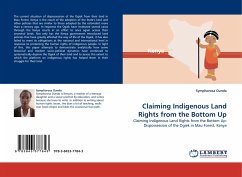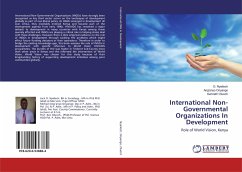The current situation of dispossession of the Ogiek from their land in Mau Forest, Kenya is the result of the adoption of the State's land and other policies that are similar to those adopted by the colonialist more than a century ago. In response the Ogiek have instituted several cases through the Kenya courts in an effort to once again access their ancestral lands. Not only has the Kenya government introduced land policies that have greatly affected the way of life of the Ogiek, it has also failed to meet its obligations at the national and international level in response to protecting the human rights of indigenous people. In light of this, this paper attempts to demonstrate analytically how some historical and modern socio-political dynamics have continued to systematically deprive the Ogiek of their land and to assess the extent to which the platform on indigenous rights has helped them in their struggle for their land.
Bitte wählen Sie Ihr Anliegen aus.
Rechnungen
Retourenschein anfordern
Bestellstatus
Storno








